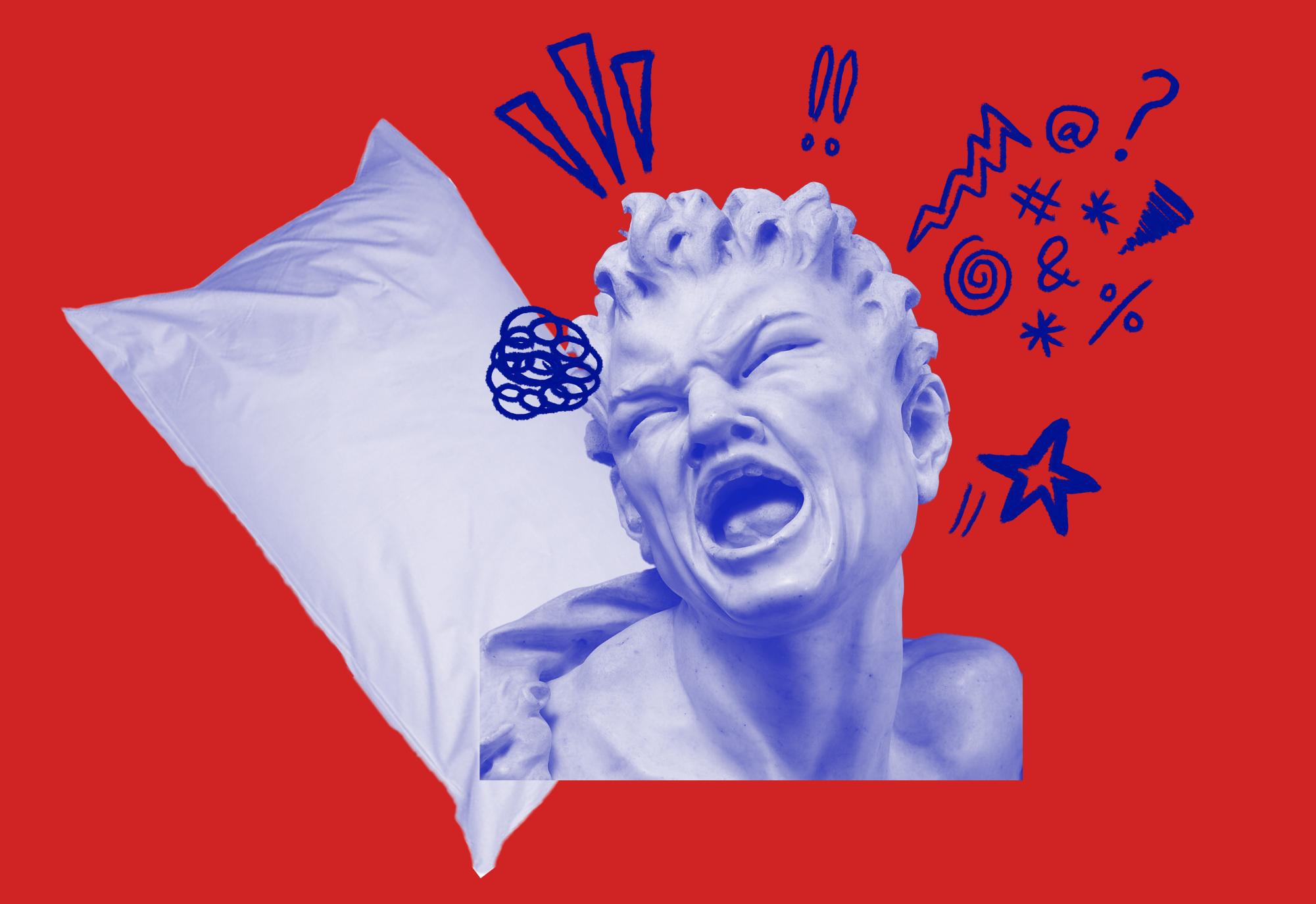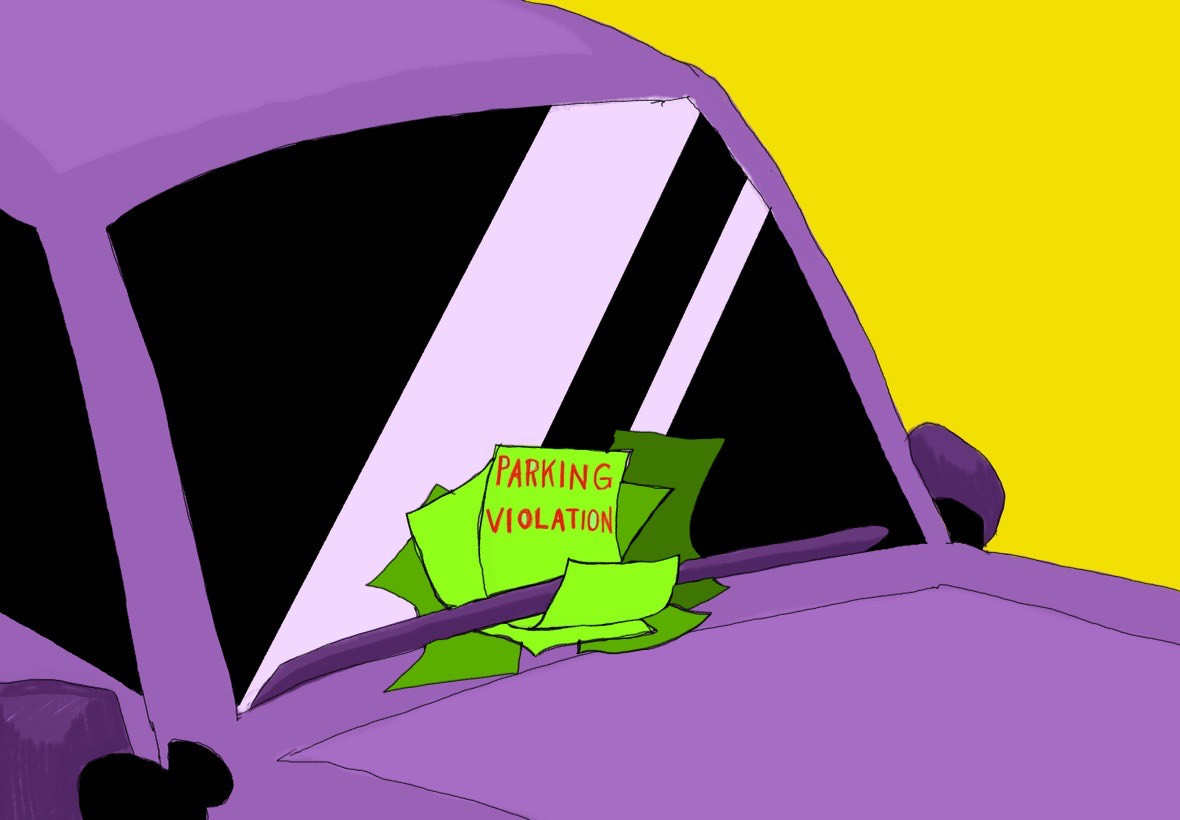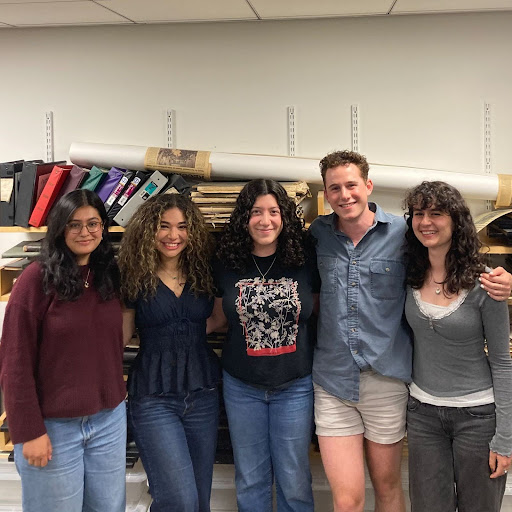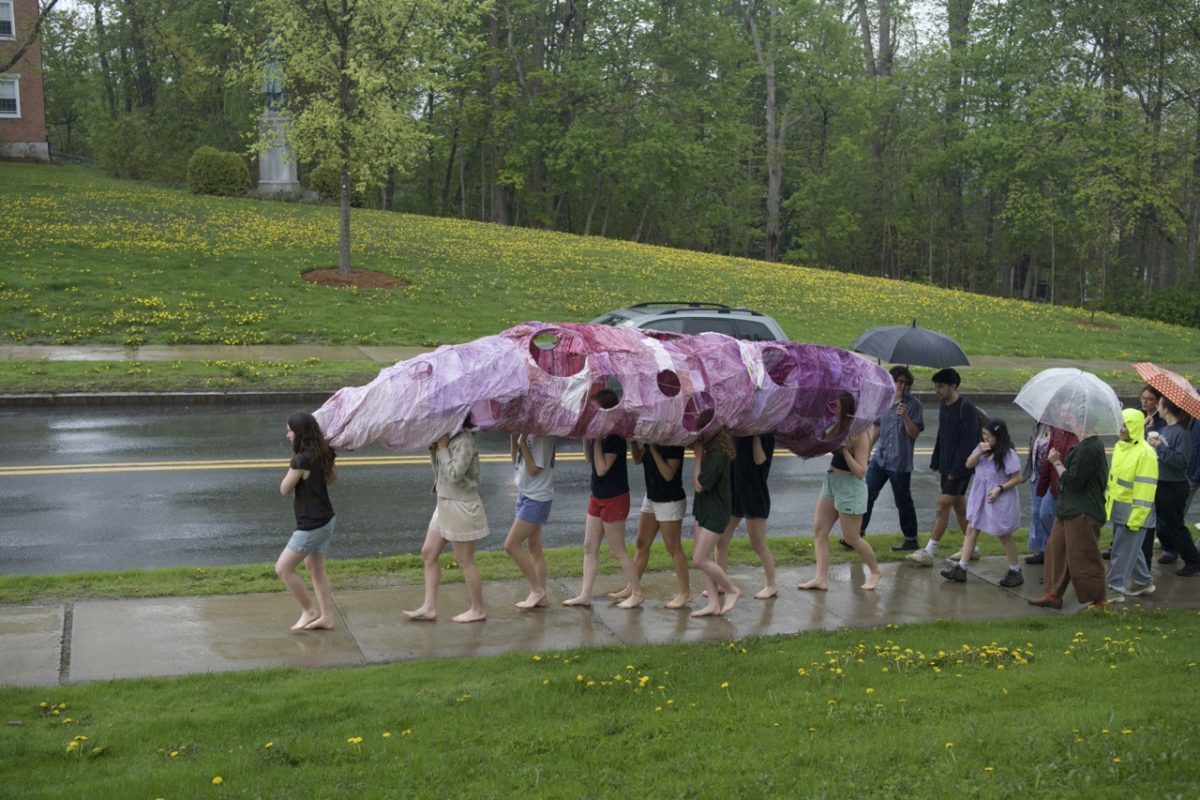
On Oct. 1, Paresky was outfitted with a mysterious “scream station” inviting students — with a not-so-subtle “SCREAM HERE” sign — to decompress by shouting into a pillow.
“This particular project was entirely outside my comfort zone and something I’ve never done before,” S.N. Wolfe ’25, the mastermind behind the temporary installation, told the Record. Wolfe designed the project for their studio art tutorial, “The Art of Almost Nothing.” For the assignment, students presented an artist or artistic movement of their choosing and then created a project inspired by the art, Wolfe said.
Wolfe’s chosen art group was El Colectivo de Acciones de Arte (CADA). CADA focuses on liberatory actions geared toward public engagement in the context of Chilean politics, Wolfe said.
Through their project, they considered what liberatory action might look like at the College — specifically, liberatory action geared toward mental health and the stigma they believe surrounds it.
“I do think there’s a misunderstanding that all Williams students are perfectly fine and well off,” Wolfe said. “I wanted to target people who needed that sort of release.”
The station was advertised in Daily Messages on Oct 1.
“It’s time to be ugly,” the message read. “It’s time to be messy. It’s time to be honest about this place being hard. The purpose of this pillow is to give ourselves a socially acceptable way to scream, be a little silly, and let our bodies let go for a moment.”
By the end of the day, only three people had actually screamed into the pillow, which Wolfe said demonstrated to them that there is a social stigma around mental health. “My experience witnessing people witness [the installation] essentially was that people are actively creating an environment of lightning-speed judgment and criticism without even stopping to question what it could be,” Wolfe said.
Though the pillow scream station has since been removed from Paresky, Wolfe stands by the project’s message. “I want people to know that they have autonomy as individuals, and I want them to know that other individuals care about them,” Wolfe said. “I think it’s something that’s severely lacking on this campus, and it’s also something that’s hard to cultivate in such a stressful and intense environment.”








